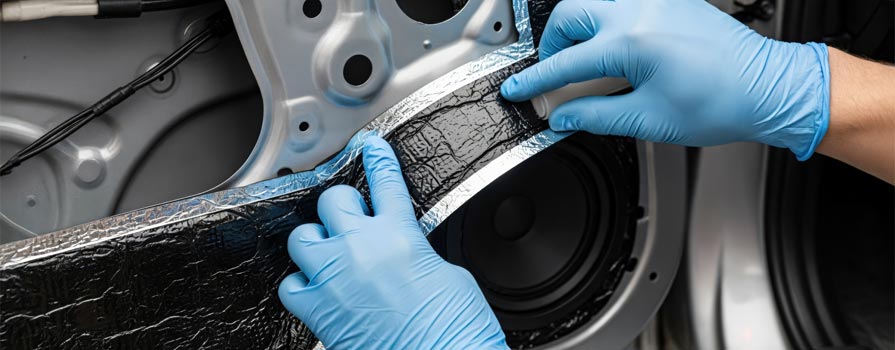Confidence in EV Battery Materials: Boyd’s Lab
Reliable, high-performance battery materials are essential as demand for electric vehicles (EVs) surges. Boyd’s new EV battery materials test lab offers a faster, more comprehensive material testing solution to meet this demand. Unlike companies that rely on third-party test houses, which takes weeks or months to complete, we streamline the testing process. Boyd consolidates all necessary EV battery material tests in one place. We’re unique in that we test individual EV battery materials and we test different EV battery material combinations. This approach saves valuable time and delivers more reliable results, giving our customers the confidence to move forward faster and more accurately.
The Bottleneck of Traditional Material Testing
Traditional test houses and individual material testing facilities delay progress. This requires coordination between multiple parties to complete a full suite of material tests. It does not demonstrate how different materials work together, but infers how they may work together by evaluating how individual material test data may perform when combined. This fragmented approach undermines accuracy, extends lead times, slows development cycles, and complicates the transition from concept to production.Accelerate EV Development with Boyd’s Testing
Boyd consolidates all EV battery material tests into a single facility. We test various material combinations to demonstrate how they will perform together. We can also test individual materials as our customers need. Boyd’s EV battery material test lab provides our customers with streamlined testing processes, reduced timelines, improved accuracy, and comprehensive data. Our tests are structured to simulate highly varying real-world environmental conditions and safety challenges. Some of the key tests we perform include:
Thermal Conductivity Testing:
Measures a material’s ability to conduct heat, from 50°C to 800°C, ensuring batteries can handle extreme conditions. Thermal performance is critical for minimizing risks during high-energy events like thermal runaway.Abusive Flame Testing:
Simulates extreme fire scenarios, heating one side of materials to 900°C to 1100°C while keeping the opposite side below 300°C. This test demonstrates how materials maintain structural integrity and resist blasts in fire-related incidents.Hot Side/Cold Side Cycle Testing:
Evaluates how materials withstand rapid temperature changes, cycling between hot and cold sides to assess thermal performance in rapidly changing environments.Dielectric Breakdown Strength:
Tests a material’s ability to resist electrical breakdown, to assess safety and durability against electrical and spark voltage energy. Effective dielectric properties also contribute to containing blast-related energy surges.Moisture Resistance:
Checks for moisture ingress that could compromise material integrity, ensuring long-term reliability in humid or wet conditions. Materials with robust resistance to moisture are less prone to failure that might trigger pressure build-up and blasts.Beyond Testing: Boyd’s Comprehensive Material Solution
Boyd goes beyond testing materials. As a material supplier and converter, we are experts at simulating and manufacturing multi-layer stackups to deliver a holistic solution to your material needs. With our in-house prototyping capabilities, we move seamlessly from test to production, accelerating time-to-market and reducing costs. By simulating combined material stackups and running FEA simulations, we deliver fast, accurate data within 2 to 14 days, empowering OEMs to make quicker, more confident decisions. Our testing process exceeds typical standards as we do not evaluate just one solution for a customer challenge. We offer “good, better, and best” material solutions based on customer requirements or higher safety margins for critical applications. We empower our customers to choose their best solution.Collaborative Testing: Boyd’s Differentiator
Boyd’s lab specializes in the EV battery market. We tackle the unique challenges of EV applications and deliver results faster than traditional test houses. With thermal conductivity testing up to 800°C, flame testing without grit penetration, and dielectric breakdown testing, we ensure materials meet or exceed EV manufacturers’ strict requirements.
Our ability to quickly verify results, combined with deep thermal management expertise, gives OEMs the ability to accelerate their project design. By replicating real-world conditions, we prepare materials for the toughest challenges.
Boyd: Your EV Battery Material Partner
By combining material testing, simulation, and prototyping all under one roof, Boyd delivers an unmatched solution for EV battery material development. Our new test lab accelerates the design and development process, providing reliable data to support your decisions. Whether you need thermal protection, blast resistance, or multi-layer material solutions, Boyd’s EV battery materials test lab delivers results that meet or exceed industry standards. To learn about our EV battery solutions, schedule a consultation with our experts to discuss your project needs.





